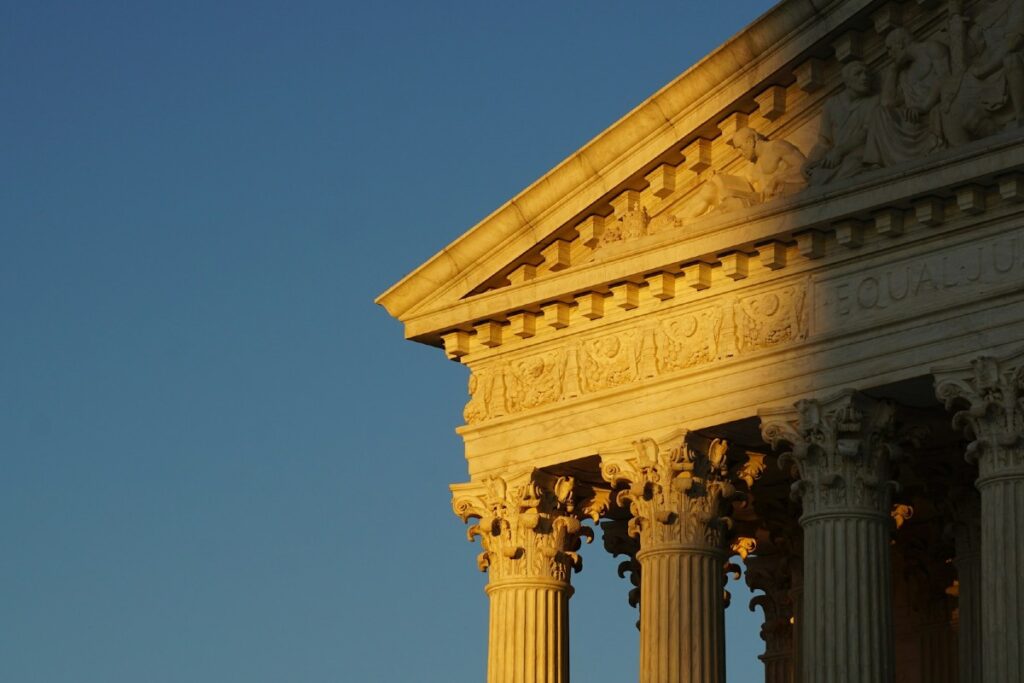By Elliott Brack
Editor and Publisher, GwinnettForum
FEB. 11, 2025 | Our United States government has three branches, the legislative, the executive and the judicial. In effect, this three-way system of government means that we have checks and balances in our system. If one of the branches gets out of whack, another will eventually bring it back in line.
![]() So far since Donald Trump has been acting like a king and seeking to do anything he pleases, our legislative system has fallen over and played dead, virtually surrendering politically with their legs up. That’s because not enough Republican members of Congress, which has a majority in both chambers, are willing to stand up to this preposterous president. The Democrats, supposedly the Loyal Opposition, are pretty puny too, not making much racket when the Trump Administration takes another outrageous step.
So far since Donald Trump has been acting like a king and seeking to do anything he pleases, our legislative system has fallen over and played dead, virtually surrendering politically with their legs up. That’s because not enough Republican members of Congress, which has a majority in both chambers, are willing to stand up to this preposterous president. The Democrats, supposedly the Loyal Opposition, are pretty puny too, not making much racket when the Trump Administration takes another outrageous step.
So, what about the judicial element in this three-way form of government?
Therein lies some hope.
While justice is slow-moving, we are beginning to see some federal justices take action on cases challenging the Trump Administration.
On January 23, a district judge in Seattle, John C. Coughenour, called Trump’s executive order to unilaterally eliminate automatic U.S. citizenship for children born to undocumented immigrants on U.S. soil “blatantly unconstitutional.” He temporarily blocked the plan, by imposing a 14 day restraining order.
Then on February 5, in Maryland, another U.S. district judge took aim at the Trump plan on undocumented immigrants. Judge Deborah L. Boardman issued a preliminary ruling to block the Trump effort to eliminate automatic citizenship for children born to undocumented immigrants within this country. This ruling went far beyond the Coughenour order. Judge Boardman said:
“The executive order conflicts with the plain language of the 14th Amendment, contradicts 125 year old binding Supreme Court precedent and runs counter to our nation’s 250-year history of citizenship by birth. The United States Supreme Court has resoundingly rejected the president’s interpretation of the citizenship clause of the 14th Amendment. In fact, no court in the country has ever endorsed the president’s interpretation. This court will not be the first.”
Boardman asked Justice Department attorneys to name cases that helped the Trump administration interpretation of the 14th Amendment. She was firm in her views, and it was clear to those in attendance that the government would have to overcome considerable obstacles to prevail before her.
She went on: “Virtually every baby born on U.S. soil is a citizen upon birth. That is the law and tradition of our country. That law and tradition are and will remain the status quo pending the resolution of this case.”
Back in the days of the Civil Rights Movement, we saw similar attention to precedent in the U.S. Fifth Circuit Court of Appeals in the South. Writing in The New York Times, Anthony Lewis said: “I think there has been no more heroic episode in American law than the work of southern federal judges in ending racial discrimination in the South. Jack Bass has brought this recent history to life, telling us much that we had not known.” Bass’ award-winning book was called Unlikely Heroes.
We have faith that many of these federal judges will make the rulings necessary to usurp the current executive orders, and keep the United States under the Constitutional rule of law as it was written by the Founding Fathers.
- Have a comment? Click here to send an email.










Follow Us